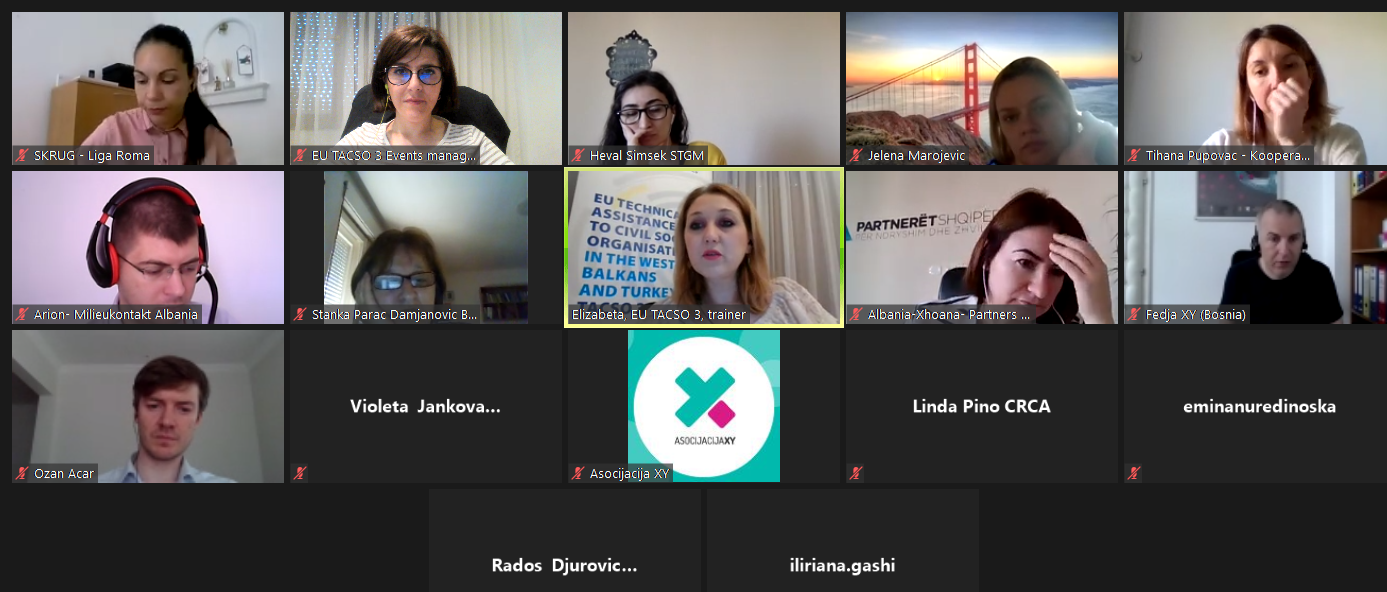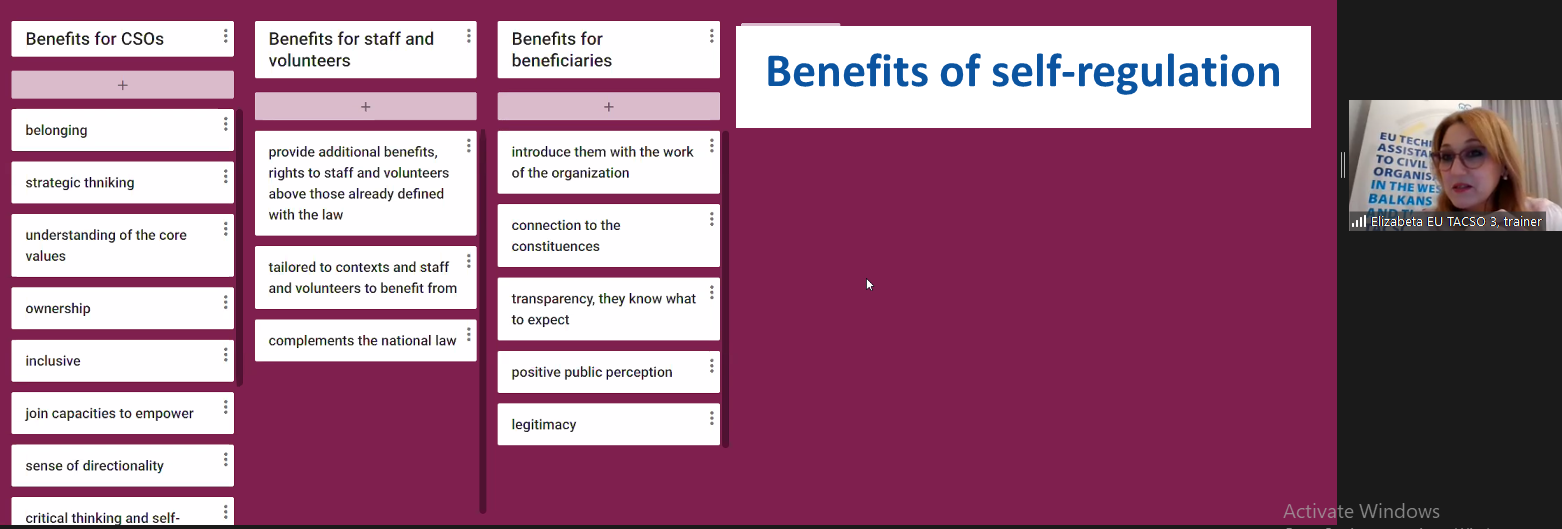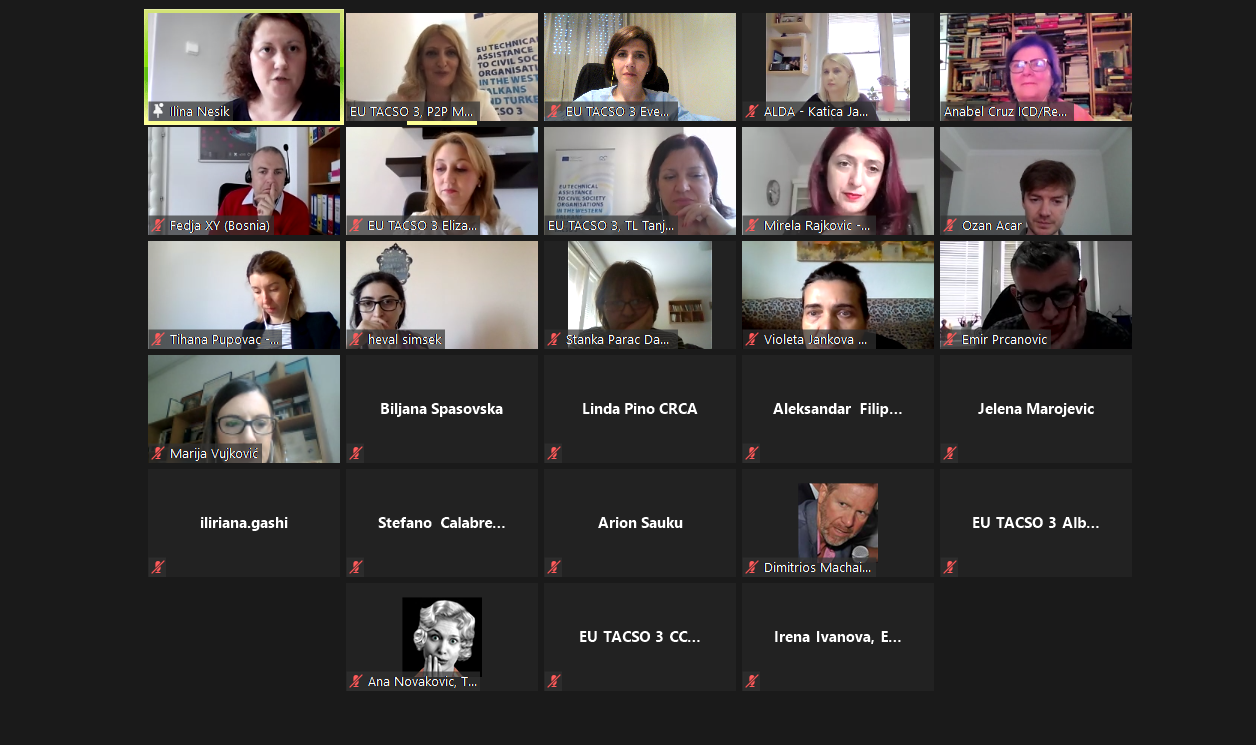
EU TACSO 3 organised Regional Training Programme and a P2P exchange event on the topic of Quality Standards and Good Governance Principles for Regional CSO Networks between 26 and 28 May 2021. The two-day , which took place 26 and 27 May, aimed to introduce participants to the existing quality standards for the CSOs and networks, focusing on the Global Standard on CSO Accountability as an international self-regulation initiative for civil society. Moreover, the training offered practical skills and applicable knowledge in conducting self-assessment for CSOs and networks. Nineteen representatives of 17 CSOs and CSO networks from the Western Balkan and Turkey attended the training. Elizabeta Markovska Spasenoska, EU TACSO 3 Country Coordinator for North Macedonia delivered the training.
In the first part of the training, participants discussed the existing quality management systems (QMS) for the civil sector, such as ISO 9001:2015, the Slovenian QMS introduced by the Slovenian Quality Institute and CNVOS and OK2015 introduced by SMART in Croatia. In the second part of the first day, the 12 commitments of the Global Standard were presented and discussed with the participants.
During the second day, participants analyzed the assessment process, the self-assessment as a specific method and generic steps of the self-assessment process. In addition, Global Standard’s online self-assessment tool Rendir App was presented and explained to the participants. The event concluded by discussing the challenges in introducing quality management standards and very positive and motivated participants.

The training programme continued with a P2P exchange organized on 28 May 2021 dedicated to the best practices in quality management. Ilina Nesik, Interim Executive Director of Accountable Now and Anabel Cruz Co-coordinator of the Regional Initiative “Rendir Cuentas”, presented experience in developing the Global Standard on CSO Accountability. They emphasized that Global Standards is a reference for civil society about how CSOs and networks work with their partners, what is the impact on social justice, human rights, the environment, etc. Also, the GSA should be seen as dynamic accountability – responsiveness to the CSOs/network stakeholders and need to incorporate the feedback from the constituency and partners. According to Anabel Cruz, CSOs accountability is not just a moment in history, it is always a present and demanding process.

In the second session of the event, representatives of various networks in the Western Balkan presented their practices on transparency and accountability. Marija Mitrovic, representing the SIGN network, presented the experience in running a non-formal network with a specific division of program and administrative responsibilities among the members as well as project management. Katica Janeva presented the European Association for Local Democracy (ALDA) network and informed that it has internal policies regulating governance, administration, and finances. It is a very authentic networking model, enabling other sub-networks to arise, such as Balkan Network for Local Democracy. Mirela Rajkovic, from South-East European Youth (SEEYN) network, gave a historical perspective on the development of a SEEYN, reflecting on membership engagement in the internal processes of strategic planning and self-assessment as key for maintaining the network. Biljana Spasovska, from Balkan Civil Society Network (BCSDN) presented the BCSDN Code of Conduct as a specific internal self-regulation code respected by the network members
